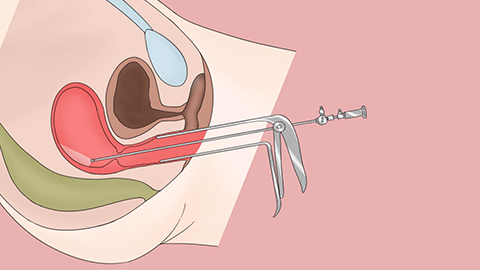What causes mild abdominal pain after hysteroscopic surgery, and what should be done?
In general, mild abdominal pain after hysteroscopic surgery may be caused by uterine contraction and recovery, postoperative pelvic effusion, postoperative endometritis, postoperative intrauterine adhesions, or postoperative pelvic inflammatory disease. It is recommended to seek medical attention promptly, identify the underlying cause, and then improve symptoms under a doctor's guidance through general management, medication, and other approaches. Specific analyses are as follows:

1. Uterine contraction and recovery: After surgical stimulation, the uterus needs to contract to return to its normal shape, which may cause mild abdominal pain lasting usually 1–2 days. Resting in bed, applying a warm compress (such as a hot water bottle) to the lower abdomen, avoiding strenuous activity, and drinking warm water appropriately can help relieve discomfort from uterine contractions.
2. Postoperative pelvic effusion: Small amounts of fluid may remain in the pelvic cavity during surgery, irritating the peritoneum and causing mild abdominal pain, typically without other obvious symptoms. Patients can benefit from gentle ambulation to promote fluid absorption, avoid prolonged sitting or lying down, and maintain a light, easily digestible diet to reduce pelvic burden.
3. Postoperative endometritis: Bacterial infection due to surgical manipulation can lead to inflammation of the endometrium, causing abdominal pain, possibly accompanied by increased vaginal discharge with an unpleasant odor. Patients should follow medical advice to take anti-infective medications such as cefixime dispersible tablets, metronidazole tablets, or levofloxacin hydrochloride capsules.
4. Postoperative intrauterine adhesions: Damage to the endometrium during surgery may result in adhesions, obstructing menstrual blood flow and causing abdominal pain that often worsens with the menstrual cycle. Medications such as estradiol valerate tablets, progesterone capsules, or enteric-coated aspirin tablets may be used as directed by a physician to promote endometrial repair.
5. Postoperative pelvic inflammatory disease: Reduced immunity after surgery may allow bacteria to ascend and infect the pelvic organs, leading to inflammation. Abdominal pain is typically persistent and may be accompanied by fever and soreness in the lower back or sacral area. Patients should follow medical instructions to use anti-inflammatory medications such as ceftriaxone sodium injection, doxycycline tablets, or clindamycin phosphate injection.
After surgery, personal hygiene should be maintained, underwear should be changed frequently, and tub bathing should be avoided. A diet rich in protein and vitamins—such as lean meat, eggs, and fresh fruits and vegetables—is recommended to support recovery and reduce postoperative discomfort.






